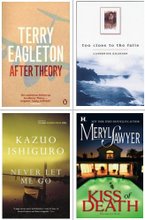Sometime in the 1600s, the printing press was invented by Gutenberg, and mass replication of text became possible. Suddenly humanity was on a new path. Previously hand-copied books were of necessity rare, and those who could read were also rare. Caxton moved the printed page from posters into books, and reading objects became more complex. In western culture, the Bible and a few other books had been preserved and studied, but that kind of studying was, in many ways, more like meditation, like lectio divina, rather than what we would call reading today.
The association of reading with the Bible and the development of Protestantism led to a immense campaign for universal literacy - everyone should be able to read so they could read the Bible. At the same time, science was developing, as the spread of reading and books led to the spread of knowledge and/or ideas about what constituted knowledge. Reading became increasingly prevalent and important because of the exact and widespread replication of textual objects, that is, books.
This incremental growth in reading and readers had an interesting impact on readers. They disagreed with each other about what the text "meant." And therein lies my next snippit.
Friday, April 02, 2004
Subscribe to:
Post Comments (Atom)


No comments:
Post a Comment